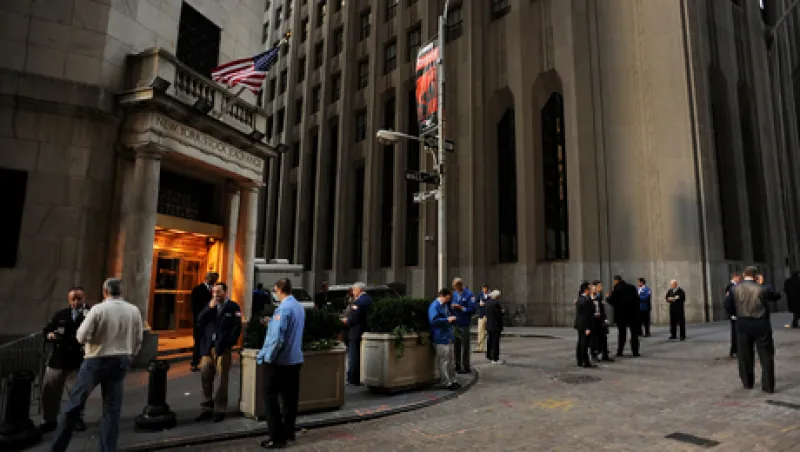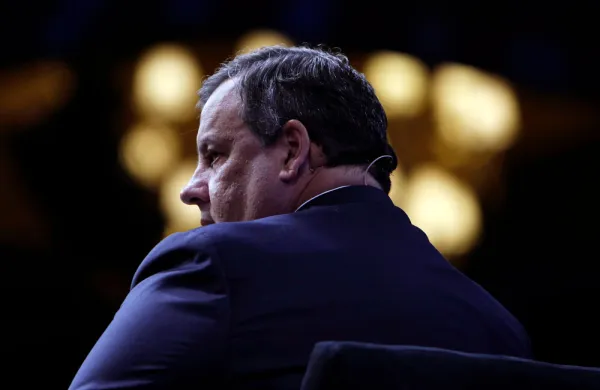New York’s financial community went back to business on Wednesday, but it’s likely to be some time before anyone calls it normal.
The New York Stock Exchange resumed trading with Mayor Michael Bloomberg ringing the opening bell after some three dozen executives and support staff camped at the Big Board’s Wall Street building since Monday to ensure the market could come back on line promptly. Although lower Manhattan remains without power and many areas were inundated by the storm surge from Hurricane Sandy, the NYSE was undamaged and able to rely on its own generators.
“We stayed dry,” said Rich Adamonis, the exchange’s spokesman. “There was no damage to the building of technology systems.” Several hundred people worked at the exchange on Wednesday, roughly 20 percent of normal staffing, and the exchange provided food and coffee in the absence of any neighborhood services. “This is a pretty resilient community,” said Adamonis, who was preparing to spend a second night at the NYSE Wednesday night before heading back to his northern New Jersey neighborhood -- which remains blacked out.
Elsewhere downtown, Goldman Sachs Group had many of its employees back at work at its ultramodern headquarters across the street from One World Trade Center, where the storm halted construction. But Deutsche Bank’s U.S. headquarters at 60 Wall Street remained dark as did Citigroup’s investment banking building on Greenwich Street.
Midtown Manhattan suffered less disruption, but with the financial sector’s work force scattered widely across the New York, New Jersey and Connecticut area, virtually every firm was affected by the lack of subway, train and bus services.
Alberto Ades, emerging markets fixed-income strategist at Bank of American Merrill Lynch, said power shortages shut down some floors of the bank’s 42nd Street offices; he estimated that 60 percent of the staff on the research floor had made it in to the office. He was counting himself lucky. “I live on Upper East Side, so frankly it just rained,” he said. “We haven’t been hit with anything except the subway isn’t running and the kids aren’t in school.”
Joe Tanious, global market strategist at JPMorgan Asset Management, reported a similar atmosphere at the firm’s offices on Park Avenue and 48th Street. “We’re trying to get back to business as usual as best as we can,” he said. Tanious went downtown for the NYSE reopening, and said it sent a welcome signal. “It’s good to see that things are back up. It was a calm day for the markets, which is certainly what we want to see.”
Tanious also lives uptown but hasn’t been unaffected by Sandy: “We’ve got a few refugees staying with us from lower Manhattan. We’ll all get through it together.”
With stocks, bonds and the dollar showing little change in light trading Wednesday, most of the talk among dealers and investors focused on what impact, if any, the storm and its aftermath would have on the economy and the U.S. presidential election.
Ades suggested that Sandy would probably be a wash, economically. The storm would probably cause a slight drop in economic activity in the very short term because of the widespread disruption in the northeast, he predicted, but much of that would be offset by a bump up in activity as reconstruction begins in coming months.
Daniel Arbess, who manages the Xerion hedge fund strategy at Perella Weinberg Partners, forecast a “potentially slight positive” for the economy over the medium term. In the short run, everyone’s eyes will be on the October unemployment report, which the Labor Department expects to produce on schedule this Friday.
The report will be the last one before Tuesday’s presidential election, and is bound to be seized on by campaigns of President Barack Obama and his Republican challenger, Mitt Romney.
Will the storm affect what most polls show to be a neck-and-neck race? That depends on which factor predominates. If the storm disrupts early voting, the impact could be a slight negative for Obama, said Ades, who noted that the president’s campaign has focused heavily on getting its supporters to the polls early. On the other hand, the storm gave the president a prime opportunity to appear presidential, noted Arbess. Indeed, on Wednesday Obama surveyed storm damage in New Jersey with local Governor Chris Christie, a Republican and key supporter of Romney.






